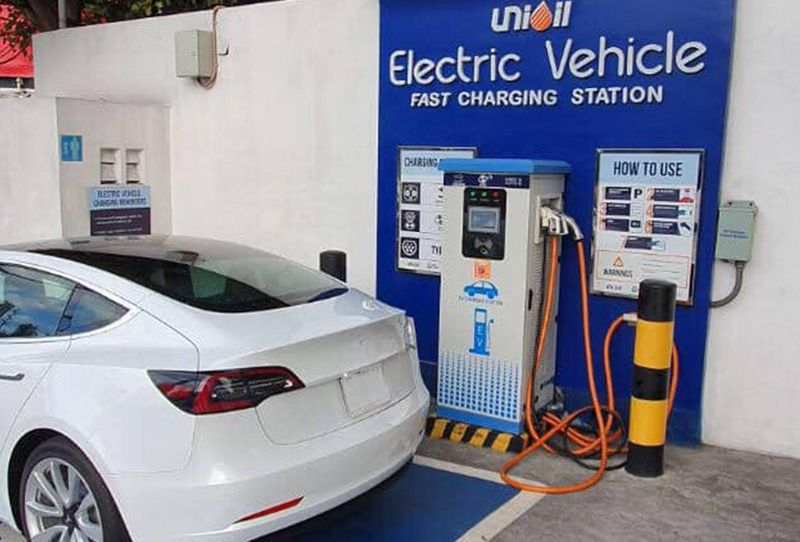COOPERATION between carmakers and distributors will hasten the use and increase the popularity of electric vehicles.
At the simultaneous launches of Kia’s latest brand revamp, the new Sorento and Stonic sporty upgrade as well as special configuration vehicles, Kia Philippines president Manny Aligada confirmed that the brand was ready to work with the industry to promote electric vehicles.
Aligada emphasized that the establishment of charging infrastructure is the key to increasing the popularity of electric vehicles in the country adding that plug-in technologies may not be the answer because traveling and traffic congestion contribute to EV owners’ range anxiety. He mentioned that in other countries where EVs are prolific, simultaneous to the sale of the vehicles, is the rapid expansion of charging stations.
Kia is yet to launch its own electric vehicle locally though it already has one model–the Kia EV6 Niro–available in the US and other markets.

“Plug-in charging at homes is only part of the electric vehicle ecosystem because it takes time to charge the vehicles from the house. Setting up charging stations is the way to increase usage,” Aligada said as he also explained how Ayala Corporation, the company behind Kia and several automotive brands has in the past, cooperated closely with rivals in the telecom field when texting was just becoming popular.
Normal plug-in using the Chademo or the Mennekes Type 2 connectors can only carry a charge that will refill a battery in 8 to 16 hours. Alternating current (AC) ports can charge vehicles in just 40 to 90 minutes from zero voltage. However, these types of charging stations require special infrastructure and wiring as well as a dedicated electrical source.
Aligada stressed that “plugging in at home gave the convenience to EV owners, traveling long distances will be restricted by the lack of charging stations. Currently, the Electric Vehicle Association of the Philippines (EVAP) has been working with all involved sectors in the automotive industry to push for more incentives for EV owners both from the policy side and from the infrastructure side. Aligada also said Kia is willing to work with EVAP to further develop the electric vehicle use in the country.
During the formal launch of the Nissan LEAF last May 9, 2021, Nissan President Atsushi Najima declared that the brand was ready to work with all car brands “Japanese, Americans, Chinese and the Europeans” to help hasten the proliferation of electric vehicle use in the country. The LEAF is a full-battery electric vehicle that retails for P2. 8 million. Najima added that Nissan was willing to create a collaborative ecosystem to promote EVs on all levels–policy, charging infrastructure all the way to battery recycling.
When Chery launched the Arizzo E5 EV in August last year, then Chery Auto Philippines Inc. President and CEO highlighted that the P1.9M EV could be charged at home using a special connector. He however said that charging stations in Chery dealers were planned and cooperation with malls and parking lot owners is seen as one of the solutions to ensure EV owners worry-free vehicle operation. The Arizza is one of the first full EV sedans in the country.
At the first meeting of the newly-formed EV Owners Society of the Philippines, Hyundai Automotive Resources Inc. (HARI) President and CEO Ma. Fe Perez-Agudo said that to “recharge the interest in electric mobility in the country” cooperation between all stakeholders, including other brands, is the key.
HARI is one of the first local car companies to introduce EVs to the Philippine market. Hyundai has an all-electric vehicle sub-brand called IONIQ. Agudo is also convinced that the next step after low emission vehicles is a “no-emission campaign.”





